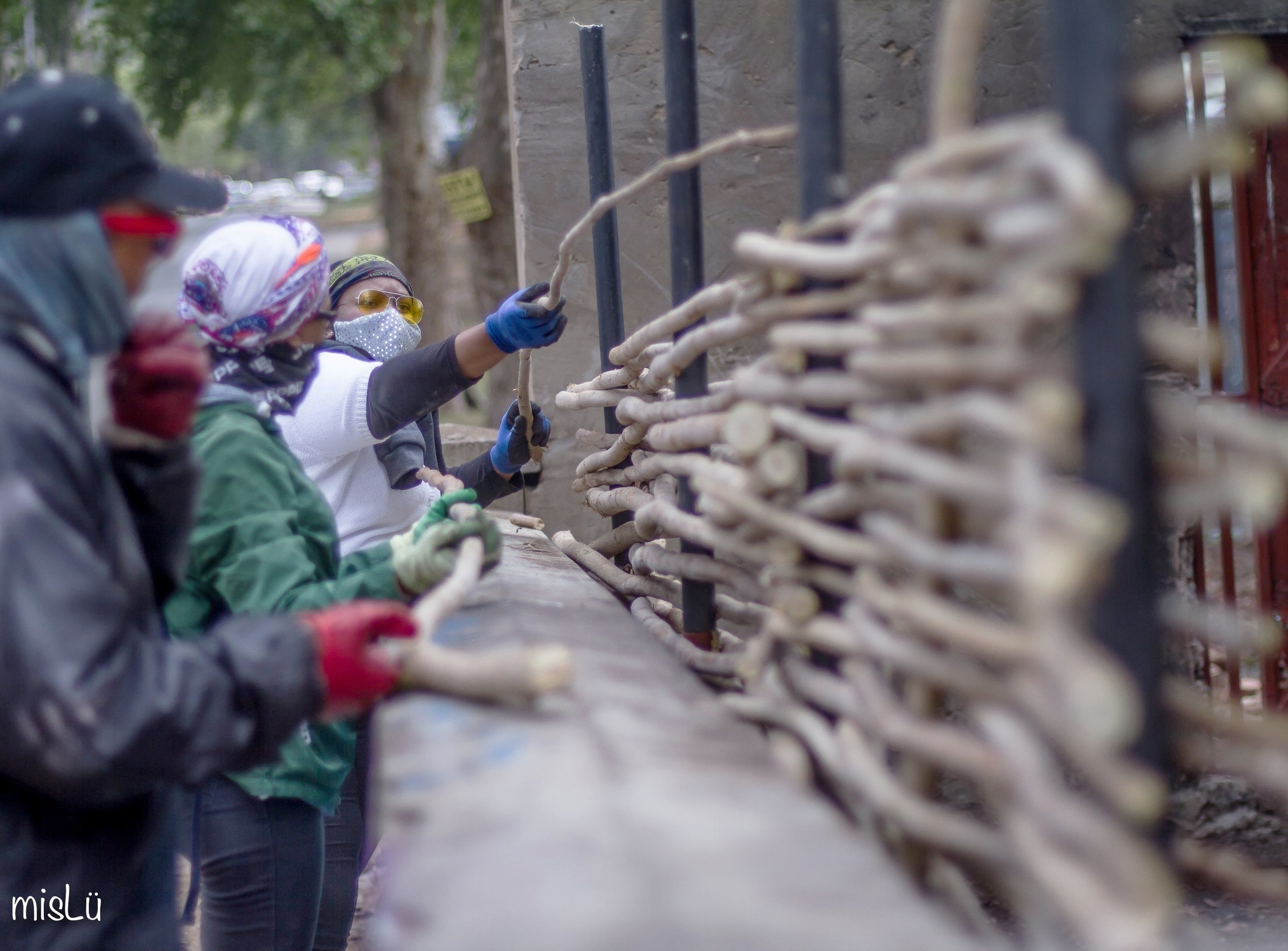
Economic Development
via Green Infrastructure
Income Generation Opportunities
For a diverse lower-income neighbourhood such as Lorentzville, creating economic opportunities is essential. But does a rehabilitated waterway contribute to this? Our work is predicated on the notion that regenerating the Jukskei River can create green jobs. And in turn, innovative green technologies can stimulate socio-economic opportunities.
The river environment is a potential source of income for local and neighbouring communities, most visibly by creating accessible spaces that were once overgrown and neglected.
Economic opportunities are inherent in restorative projects, like our removal of invasive alien plants project: the clearing of alien woody biomass develops green value chains that support the restoration of ecosystems for climate change mitigation as well as providing biomass for mulch, firewood and weaving materials.
Alongside the events and activities we’ve held for alien-removals, we have produced a great number of participation programmes providing environmentally-focused economic opportunities for a number of local people and organisations. In 2021, many of these events were enabled by The Sustainable Together grant from the Goethe Institut and British Council.
The landscape made available for businesses is also aesthetically appealing, improving property values – management from our base in Victoria Yards is now creating more studios that overlook the river.

Get involved.
Help us grow the local economy.
-

IAP Biomass
Invasive Alien Plants (IAPs) pose a direct threat not only to South Africa’s water security, but also to biological diversity and the climate-wise use of land. The development of a sustainable IAP biomass economy is becoming a crucial opportunity for enterprising communities.
-

Orchards
Water for the Future worked with community to plant fruit tree orchards. Sponsored by Trees for Africa and curated by Victoria Yards head-gardener Tony Bensusan, the orchards function as an open-air school dedicated to creating indigenous biodiversity and education.
-
Plant Medicine
Waterways in Johannesburg offer viable shared space to grow endangered medicinal plants. Cultivation of medicinal plants in an urban context with limited space, such as this wall, can mitigate declines in the wild and also supply material to markets and healers.
-

Recycling
Water for the Future’s education programmes promote multiple modes of practical and creative recycling. As well as producing a Community Bin collaboration with Nando’s, we are facilitating the creation of a Bokashi compost heap servicing the food waste of local businesses.



